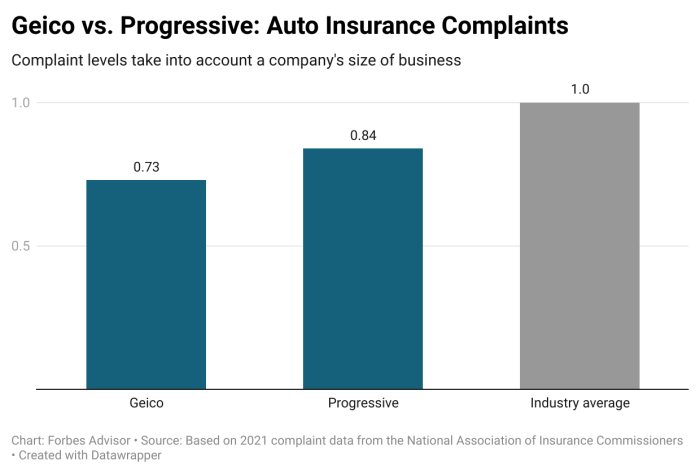Delve into the world of primary care physicians with a guide on how to find the best one near you. Discover the key factors to consider and the importance of insurance coverage in this essential healthcare decision.

Researching Primary Care Physicians
Having a primary care physician is crucial for maintaining overall health and managing any medical conditions effectively. They serve as the first point of contact for any health concerns, provide preventive care, and coordinate specialized care when needed.
Identifying Different Sources
- Ask for recommendations from friends, family, or colleagues who have positive experiences with their primary care physicians.
- Check with your health insurance provider for a list of in-network primary care physicians in your area.
- Use online platforms like Zocdoc, Healthgrades, or Yelp to search for primary care physicians based on location, specialty, and patient reviews.
Comparing Online Reviews, Recommendations, and Ratings
Reading online reviews and ratings can help you gain insights into the quality of care provided by different primary care physicians. Look for trends in reviews regarding communication skills, bedside manner, wait times, and overall patient satisfaction. Keep in mind that while reviews can be helpful, they should not be the sole determining factor in your decision.
Consider scheduling a consultation or a meet-and-greet appointment with a potential primary care physician to see if they are the right fit for you.
Factors to Consider
When choosing a primary care physician, there are several key factors that you should take into consideration to ensure that you find the best match for your healthcare needs.
Location and Office Hours
One of the most important factors to consider when selecting a primary care physician is the location of their office and their office hours. It is crucial to choose a physician whose office is conveniently located near your home or workplace, making it easier for you to schedule and attend appointments.
Additionally, you should consider their office hours to ensure that they align with your schedule and allow for flexibility when booking appointments.
Physician's Experience and Specialties
The experience and specialties of a primary care physician are also vital factors to consider. It is essential to choose a physician who has a wealth of experience in treating a variety of medical conditions and has a proven track record of providing high-quality care.
Additionally, you may want to consider whether the physician has any specific specialties or areas of expertise that align with your healthcare needs, such as chronic disease management, preventive care, or mental health services.
Insurance Coverage and Network
When looking for a primary care physician, it is essential to consider your insurance coverage and network to ensure you can access the care you need without facing exorbitant out-of-pocket costs.
Checking In-Network Providers
- Verify with your insurance provider if the physician you are interested in is in-network to maximize your coverage benefits.
- Being treated by an in-network provider typically results in lower out-of-pocket expenses compared to out-of-network providers.
- Check your insurance plan's provider directory or contact your insurance company directly to confirm network participation.
Verifying Insurance Acceptance
- Before scheduling an appointment, call the physician's office to confirm that they accept your insurance plan.
- Provide your insurance details, including the plan name and member ID, to ensure accurate verification.
- Ask about any co-pays, deductibles, or coinsurance amounts you may be responsible for during your visit.
Initial Consultation and Evaluation
During your first visit to a primary care physician, you can expect a thorough evaluation of your medical history, current health status, and any specific concerns you may have. The physician will likely ask you about your family medical history, past illnesses, and medications you are currently taking.
They may also conduct a physical examination to assess your overall health.
Questions to Ask During the First Visit
- What is your approach to preventive care?
- Can you explain how you communicate test results and treatment options?
- How do you handle after-hours emergencies or urgent care needs?
- What is your referral process for specialists?
- Do you involve patients in decision-making regarding their healthcare?
Importance of Establishing Rapport
Feeling comfortable with your primary care physician is essential for building a trusting relationship and receiving quality care. Establishing rapport with your physician can make it easier to communicate openly about your health concerns and collaborate on treatment plans. It is important to find a physician who listens attentively, respects your preferences, and involves you in decision-making regarding your health.
Patient Referrals and Recommendations
Patient referrals and recommendations play a crucial role in finding the best primary care physician for your needs. By seeking advice from individuals who have had firsthand experience with a particular doctor, you can gain valuable insights that can guide you in making an informed decision.
Significance of Patient Referrals
- Referrals from friends, family, or other healthcare professionals can provide personal accounts of their interactions with a primary care physician, giving you a glimpse into the doctor's bedside manner, communication style, and overall approach to patient care.
- These recommendations can help you narrow down your choices and focus on physicians who have a positive reputation within the community.
- By considering patient referrals, you can also learn about the doctor's expertise, experience, and ability to address specific medical concerns effectively.
Tips for Evaluating Referrals
- When receiving referrals, ask about the reasons behind the recommendation and what stood out about the physician's care.
- Consider the source of the referral and whether their healthcare needs and preferences align with your own.
- Research the referred physician further by checking online reviews, credentials, and any disciplinary actions to ensure they meet your standards for quality care.
- Don't hesitate to schedule an initial consultation with the recommended physician to assess your comfort level and discuss your healthcare needs.
Summary
In conclusion, finding the best primary care physician involves thorough research, consideration of key factors, and seeking recommendations. Your health is your priority, so choose wisely.
Questions Often Asked
How important is having a primary care physician?
Having a primary care physician is vital for preventive care, managing chronic conditions, and coordinating your overall health needs.
Why is it crucial to check if the physician is in-network with your insurance provider?
Being in-network can significantly reduce your out-of-pocket costs and ensure that your insurance covers the services provided by the physician.
What should I expect during an initial consultation with a primary care physician?
During the first visit, the physician will review your medical history, perform a physical exam, and discuss any health concerns or goals you may have.
How can patient referrals help in finding the best primary care physician?
Patient referrals offer insights into the physician's bedside manner, communication skills, and overall quality of care, helping you make an informed decision.









